Malcolm Kenyatta Is Ready to Rebuild the Democratic Party
The DNC's gay vice chair has a message for Democrats: Stop waiting for a hero and get to work.

“Government should either be about making your life better or leaving you the fuck alone,” says Malcolm Kenyatta, vice chair of the Democratic National Committee. “That’s why I keep talking about making life better, because it keeps what should be our main message at the forefront of our work.”
Last month, the openly gay Pennsylvania state representative was re-elected as vice chair with near-unanimous support during a “re-vote” imposed by Democratic leaders. They claimed that his initial election to the position — along with David Hogg, a nationally known survivor of the 2018 mass shooting at Marjorie Stoneman Douglas High School in Parkland, Florida — was influenced by factors that unfairly disadvantaged female candidates.
Despite seeking a leadership position within the party, Kenyatta appears eager to push for change following an election cycle in which voters largely abandoned Democrats for various reasons.
“I think that the Democratic Party has a really hard job that the Republicans don’t have, and that job is to recognize that when we talk about ‘fixing institutions,’ it’s not about freezing them in stasis, it’s not about preserving what they are, it’s about understanding what they can and must be,” Kenyatta says.
“I didn’t run to be vice chair of the DNC because I like how everything is going,” the 34-year-old continues. “I ran because I felt like there was something wrong, and there was an opportunity to change it.”
Raised by a divorced mother in Philadelphia, Kenyatta, the youngest of four children, was the beneficiary of a number of social safety net programs in his early years, which he says helped his family make ends meet.
But he believes that while Democrats are responsible for those programs’ existence, too many elected Democrats — particularly as the two main political parties have realigned along income and educational levels, with upper-middle-class, high-income and white-collar professionals making up an increasing share of the party’s base — have no concept of what life’s struggles are like for the working poor.
“Many of our institutions are filled with people who have no clue about looking around your house and saying, literally, ‘What the hell am I going to feed my kids tonight?'” he says. “There are a lot of people who can sympathize with that — it sounds bad — but it’s a whole different can of worms when that is your actual life. I think we need systems run by more people who have that experience. People who recognize that what the government does or doesn’t do isn’t just another episode of a TV show, and that there are real people who are impacted by that.”
Encouraged by a mother who expected him to do more than “hang around,” Kenyatta was deeply involved in his community, volunteering, mime dancing in his church, becoming an ordained minister at age 14, and even serving as a junior block captain for a city program intended to beautify neighborhoods.
He also credits two teachers at Roxborough High School who encouraged him to pursue high-level academic courses, to dive into extracurricular activities, including running for (and being elected) student body president, and to foster his organizational and public speaking skills.
As our conversation turns to the status of the Democratic Party, which is currently enmeshed in soul-searching following President Donald Trump’s re-election last year, Kenyatta is happy to advise his fellow party members to stop “talking problems to death” and taking decisive action — albeit in a strategic, reasoned manner.
“Part of the reason I ran for DNC vice chair was my whole message about our approach, at this moment, to Trump,” he says. “It is a crisis — the house is on fire. But if you’ve ever seen a first responder or a firefighter engaged with a big blaze, they’re not going in like a chicken with their head cut off. They’re going in very strategically. And the Democratic Party has to be strategic now.”
Touting the DNC’s investment of a million dollars per month to state parties — the largest such investment in the party’s history — to support year-round organizing at the local level, Kenyatta emphasizes that the party’s focus cannot be solely on Washington. Instead, he argues, attention to downballot and local races helps build a bench of future political stars and bring about change from the grassroots level up.
“If we want to make people’s lives better, the offices that do it are your mayor, your council person, your State House, State Senate candidates,” he says, noting that national Democrats would be best advised to listen to and respond to community feedback that local elected officials are hearing on a daily basis.
“As a local elected official, you ain’t got no choice but to listen,” he says. “When I’m at church, I have constituents who want to talk to me. When I’m at the grocery store, they’re talking to me. As a local elected official, you get a free focus group every single day.”
Kenyatta warns that voters don’t care about ideological purity as much as political insiders do, and notes that Democrats largely disagree on tactics but not on underlying values.
When it comes to messaging and communicating with constituents, Kenyatta, who comes from the more progressive wing of the Democratic Party, does not embrace a top-down, one-size-fits-all approach that can read as calculating, cold, or insincere to average people. He trusts individual candidates to make their own judgments and tailor their own messages to fit their communities and connect to people, instead of adhering to poll-tested pablum and political litmus tests.
“I don’t think that a country this diverse in every way can be led effectively by anybody who does not genuinely respect people’s distinctions,” he says. “Our distinctions are our superpowers. It is not in spite of growing up as a poor black gay kid in North Philly that I look at the world the way that I do, it is because I am those things that I look at the world the way that I do.”
Mindful that members of the LGBTQ community are frustrated, exhausted, stressed, or even fearful about being on the receiving end of political attacks, Kenyatta encourages LGBTQ people not to leave the country or attempt to “re-closet” themselves.
“There is something about how your mind works when you’re a part of the LGBTQ community that I think is important, because we have been forced to create worlds for ourselves that by definition don’t exist,” he adds. “We’ve been forced to have to figure out how to build families when the government says we’re not allowed to. We’ve had to figure out how to work and live when so many obstacles are against allowing us to do basic things, like working and living. Those are going to be critical tools for us to possess when we have to rebuild after all the destruction that Donald Trump leaves in his wake.”
Kenyatta notes that LGBTQ people have always been involved in all of the major movements for social and political change throughout the country’s history, citing a few examples, including Langston Hughes, James Baldwin, and Bayard Rustin.
“The country has never existed without us,” Kenyatta says. “It’s not going to exist without us. And frankly, it’s not going to be what it can be if we somehow disappear.”

METRO WEEKLY: You’re an out gay man working in the political field. Let’s talk about when you first came out, and what the process was like for you?
MALCOLM KENYATTA: It’s so funny, because I don’t usually talk to a lot of people about being in church or that much about high school, but it’s all connected. I was leading Bible study, and I came home from church. As soon as I put my hand on the door, my mom was there, opening the door — like ripping the door open. She stopped me at the entrance and said, “Are you fucking gay?” And I was like, “Yes.”
I don’t even know if at that point I had really accepted I was gay, because I had girlfriends, but I messed around with guys here and there. But I don’t know that I considered myself gay. I had a guy who I was talking to, who was friends with the younger sister of one of my mom’s friends. And that person was an open lesbian. She was a little bit older than us, maybe 18, and was openly gay, and I was totally fine with it. And the guy I was talking to at the time told her, “Oh, I’m talking to Malcolm. He’s my boyfriend, I guess,” or whatever. And she told her sister. I don’t think she was trying to out me, but she just mentioned it. And her sister told my mom.
I had really assumed — incorrectly — that if I ever came out, that my mom would be really supportive and we’d have a cute Lifetime movie moment. That was not what happened.
She flipped the fuck out. She kicked me out of the house — just for that evening. I went to stay with my dad for the night. And it was a tale of two experiences, because my dad was like, “Okay, yeah, I was just waiting for you to tell me. Clearly, you’re gay.” And I was like, “What, clearly?” He was like, “Yes, yes, you’re gay. That was always very clear to me.” He gave me a big bag of condoms — an obnoxiously huge bag of condoms — and was like, “Be safe.” And I was like, “Okay.” And that was the whole conversation with my dad.
With my mom, it was a much more difficult process. I came home the next day, and we were kind of ships in the night. We didn’t speak for a long time. And that was my senior year of high school. I looked back at my pictures from my graduation, and we are not feeling each other at all. We’re barely looking at each other, barely talking.
Now, I had a girlfriend who I dated off and on throughout high school. We were best friends and then girlfriend-boyfriend. And right before college, I came out to her. I was like, “I think I’m gay.” We stayed on the phone for two or three hours, and I just cried and cried and cried. She was so supportive. She was one of the best people in the world. I was really lucky to have that. And that was the first time I think I really came out to myself.
My mom and I really didn’t talk, unless we had to, for the first semester of [college]. That first Thanksgiving, we had the beginning of our heart-to-hearts. My mom passed right before I turned 27, but I’m really grateful that we had time to sort of rekindle our relationship. But it was a tough year, I would say.
MW: How did you become involved in politics?
KENYATTA: To answer that question, I always have to answer it two ways. First, I come out of a legacy of political activism that I wasn’t really exposed to. I wasn’t that close to my dad’s side of the family growing up, but my dad comes from a pretty infamous civil rights legacy. My grandfather, Muhammad Kenyatta, was a civil rights activist who was involved in the Mississippi Freedom Democratic Party. He went to Tougaloo College in Jackson, Mississippi at the time, and was run off the campus by the FBI, as part of a program that we all now know about called COINTELPRO, in which the FBI was surveilling and trying to intimidate civil rights leaders. So my grandfather was really involved in the civil rights movement.
And then the other part of the answer is that I wasn’t told I needed to be involved in politics, I just very naturally got involved in it. When I was 12, I did the first thing I ever did civically. One of the many places we lived was on this little block called Woodstock Street, and it was a new block. My aunt lived on the block. I did not want to live there. My parents were divorced, and I was just mad at the world at that time. And I came home one day, and I was like, “This block is so dirty,” and whatever. And I’m complaining. My mom had just lit up a Newport on the stove. And she’s smoking the cigarette and listening to me complain. And she said, “Well, if you care so much about it, why don’t you go fucking do something about it?” And I was like, “Okay.”
So Philadelphia has the Philadelphia More Beautiful Committee, which is the organizing arm of block captains working to clean and beautify their neighborhoods. That was a big thing for Mayor John Street. And so I went and talked to the block captain at the time, and the block captain was like, “Well, they’re starting this new thing called a junior block captain. Why don’t you be the junior block captain?” So I had to go around, get signatures to become the junior block captain, and I did. And we cleaned up the block and started supporting annual block parties that we would have.
I tell you all that because I wrote an essay that year about what we had done on the block, and I won the junior block captain competition. And I got a sign put up that says, “The junior block captain cares for this block.” And that sign is still up now. So that’s the first thing I ever specifically remember doing where I was civically engaged.
MW: Why did you choose to join the Democratic Party?
KENYATTA: Because, as tough as my life was, as tenuous as it was, throughout my life, I saw the fingerprints of Democrats who fought to make it possible for me to get across the finish line of high school and start my life.
I only had health care because of a program called CHIP — so the CHIP program is really central to my entry into politics. It was the first government program that I think I understood, because I would get chronic strep throat as a kid. And there was a little clinic that’s still in my district — the Drexel 12th Street Clinic. And one day, one of the nurses or whatever was like, “You qualify for CHIP.” And I got signed up for that program. And so it was the first time I ever understood politics and what that meant in a real way.
Obviously, we were on food stamps many times, but I didn’t necessarily connect it to politics. With CHIP, I was able to very specifically connect it to Hillary Clinton, who I remember talking about the program. In my house, Hillary Clinton was a saint, particularly for that program. And when I was a teenager getting into that program, I thought, “Oh, wow. Yeah, a Democrat did this.”
When I think about my life, all of the different social safety net programs that made it possible for me to be here were programs that Democrats fought for and made a reality. And what I fundamentally believe is that we need a strong Democratic Party, a new Democratic Party, that can meet that moment for the next generation of kids.
MW: Particularly after this last presidential election, the Democratic Party appears to be going through an identity crisis. How would you define a “Democrat,” and what should the basic beliefs be that tie together all Democratic candidates across all districts?
KENYATTA: Three words: Make Life Better.
When you talk about a “brand,” I guess it was Steve Jobs who said, “A brand is what people say about you when you’re not in the room.” And that is built, in part, by verbalizing what your mission is. And then, when you act on that, that becomes your brand. So you have a core mission. Telling people what that mission is, is your message. And then you have a responsibility to do the thing that you said you were going to do, that you told everybody your mission was. And when you do that, that becomes your brand.
I think our mission is to make life better for folks, to make it possible that you can have one good family-sustaining job, and not have to have two or three or four jobs, like so many folks have. To make it possible that that job, ideally, can be backed up by a union.
We believe that we make life better by allowing people to have somewhere to live, and to be able to afford that first home or afford the rent. And for that home to be in a neighborhood that’s safe. If you decide to have or expand your family, you ought to know that your kid is going to leave out the front door of that home that you can afford, in that safe neighborhood, to go to a good fully-funded public school, to be given all of the tools that they need to get their good family-sustaining job or open that business. And then you get to retire with a level of dignity and decency, ideally in the same home where you raised those kids.
Our job as Democrats is to get all the crap out of the way that makes it less possible for you to do that. Part of what that means is supporting the people that my faith teaches me to support — the least among us, the lost, the left behind. And when we do that, when we treat everybody with dignity, decency, and respect, then I think not only do we have a strong party, but I think we have a stronger country.
I have this idea that if government is not making life better, then it should leave you the fuck alone. On so many social issues, I make the point that the government should be making sure you have food on your kitchen table, not trying to dictate the conversation that you have around it. Making life better, to me, is not only the mission, I think it’s the ultimate message of our party.
And I think we can, within that frame, not only have tolerance for — but make the necessary space for — people to talk about what specifically needs to be made better where they live, for people to have messages that are going to be regionally- and culturally-grounded, but with an overarching understanding that it is our job to make people’s lives better so they can have those things that I mentioned: a good job, home in a safe community, kids going to a good school, some retirement dignity. I think those are four things that bring all Democrats together and that everybody is talking about across our “big tent” party.
MW: Why do you think the Democratic Party currently has such low approval ratings, even among self-described Democrats?
KENYATTA: I think a part of the reason we have bad approval ratings is that we lost a really important election and people are frustrated by that. But I think we should stop minimizing ourselves as a party.
One of the things that I’ve said is you’re not going to shit-talk yourself into success. And there is a group of folks who think that they are saying something so “cool” by spending every day going on TV, writing another op-ed about how Democrats suck. If crapping on yourself worked, if being mean to yourself worked — just think about the ways in which we’re not always nice to ourselves personally — it would’ve already worked.
What happened in this last election, in my view, was that we had millions and millions of people stay home. Donald Trump got six or seven million fewer votes than Joe Biden got four years before. Democrats care enough about government that I think we are having a very harsh and necessary introspection about the fact that a lot of people looked at government and said, “Democrat, Republican, Independent, I don’t think any of you are going to solve my problems and make my life better, so I’m not voting at all.” We have people who don’t share our belief that we can actually implement the things we say we value, or that when given the opportunity, we will make their lives better.
I think that we have seen, during Trump’s administration and through the COVID pandemic, a loss of faith in institutions. And I think the response to that is not to walk away from institutions. I think the response to that is to make institutions what we want them to be. That’s why, as frustrated as I am with politics, as frustrated as I am, many times, with the Democratic Party, my response to that frustration isn’t to say, “Let me just go on Twitter and say Democrats suck.” My response is to actually go and do the hard, unglamorous work of trying to make this party what it must be. That’s what I hope all of us choose to do.
The Democratic Party is not what it can and must be, because a lot of people aren’t in it. So we need your voices. We need you to step up and run for office. We need you to be engaged in a way that you’ve never engaged before. There’s nobody coming to save us — it’s up to us to save ourselves. And I think this is a moment where we have to step up and try to save ourselves.
MW: I think people also misunderstand what the role of the DNC is.
KENYATTA: Oh, they do.
MW: They think the DNC is literally running every campaign and dictating the messaging in each one. But it’s the state parties that are involved in elections.
KENYATTA: And they think we’re running the congressional campaigns.
Our only job at the DNC is to help elect Democratic nominees and to be the tip of the spear in terms of responding to the craziness that’s coming out of D.C. and the states, so that people know what’s actually going on and what’s happening. But we don’t dictate to our congressional leaders — we work in partnership. We don’t dictate to our candidates — we work in partnership. It’s why that big debate we’re having nationally about primaries was so important, and us staying out of primaries.
But I want to be very clear: the DNC is not a fucking incumbent protection racket. My job is not to re-elect incumbents. My job is to elect Democratic nominees. That’s why when the mayoral primary was over in New York, the first two people who were out tweeting congratulations to Zohran [Mamdani] nationally were Ken Martin, our chair, and myself. And the DNC put out our statements and our graphics [for Mamdani] the way we do for all of our nominees, because he is now our nominee. We did the same thing for Mikie Sherrill, who’s more moderate, in New Jersey. She is our nominee.
But part of what I try to do in this role is to make sure that the nominees that we highlight are not just the nominees who you hear about on CNN. There are people who got elected to County Council and District Attorney and all these other races that matter as well, and they need a national Democratic Party that’s going to be focused on them, too.
And that’s what you see from me in my travels and from the chair. We’re out knocking on doors, giving resources, providing communications support for all of our candidates, no matter what level of office they’re running for. This party does not exist to just throw a big celebration every four years and announce the nominee. There are elections happening every six months, and in some cases, if you’re including special elections, more frequently than every six months. And we have to make sure that there is the training, the organizing capacity, the technological infrastructure for people to go out and win these races. That’s what we’re trying to do right now.
MW: As you alluded to, some people do criticize you as an “incumbent protection racket.” But I think there’s nuance and differences between primarying an incumbent for the sake of primarying them, and primarying an incumbent whose constituents know has lost touch with the community.
KENYATTA: Well, I want to be very clear: I’m on the side of no incumbent. I’m an incumbent [in the Pennsylvania House of Representatives]. Somebody could primary me. No incumbent is
“above” being primaried. My role is to let voters decide and then elect the nominees that voters choose. And if people are out of touch, voters will tell them that by not re-electing them and electing somebody else who stepped up to run.
So listen, we’re going to support all of our Democratic nominees. I think the more people we get engaged in the process, the better. I keep saying this to people because it’s so critical: the party is not what it can be because you’re not there. I want you to step up and run for office, for Congress, for State Water Board — there is a State Mosquito Board in many Southern states that really is important; mosquitoes are awful, and they need to figure out how to manage them — run for that. Whatever it is, run for office. I often hear people talk about what the Democratic Party, or what the DNC did two years ago, or five years ago, or six years ago. I share those complaints, but I’m not responsible for the past. I can’t do anything about it. My job is to say, “What can we do about the future?”
I have people say to me, “Well, Malcolm, in 2016, they weren’t neutral in the primaries.” I hear you. And so now we’re making sure that we’re going to have a presidential primary where we’re not putting our thumb on the scale. We’re going to have a presidential primary where everybody’s going to be able to run. And that should be true for all of our primary elections. The job of the party infrastructure is not to pick winners and losers. The job is to support the winners that voters choose, because the people who win those tough primaries are clearly people who are speaking to their constituents and their neighbors and the people within our party. And we ought to be listening to what they’re saying.

MW: I would be remiss if I didn’t ask you about your former fellow vice-chair, David Hogg. Obviously, the DNC redid its election following a complaint. You ran again, and you were elected again. David decided not to run again, and there was this public infighting about primary challenges to incumbents. David has since moved on to work on electing what he sees as “better” Democrats. Do you feel your friendship with David is still intact?
KENYATTA: Listen, we don’t disagree on the fact that there should be primaries. We agree. I think the only issue here is whether or not people want the officers of the DNC trying to choose. I don’t think I should be sitting in a room trying to choose. Now, some people may say, “Well, Malcolm, I’m comfortable with that. You’re vocal. You’re a fighter. You recognize this moment, and so we want you to choose.” And that sounds good, but Malcolm won’t be here in four years. There’ll be somebody else who might have a different view of the world than I have. And then people will be saying, “Hey, the Democratic Party shouldn’t be choosing.” And so our responsibility is to make sure there are robust, fair primaries, and that then we support the Democratic nominee.
I don’t have an issue with unions and organizations who are going to endorse different people –- EMILY’s List, Victory Fund, Collective PAC, all make endorsements in primaries. Run For Something PAC supports and equips young people to run for office. The first event I did after being elected vice chair in February was to do a virtual event for Run For Something, talking to candidates who are considering running for office and encouraging them to do so.
So David and I don’t have an ideological difference. Our difference was grounded in the very simple fact that he took a series of unfortunate things, like this re-election, and tried to make it about “the DNC trying to get rid of him.” He knows that’s wrong. [DNC Chair] Ken [Martin] wants robust primaries. Ken was the original person, after 2016, who led the reforms to our parties to diminish the impact of superdelegates, to get parties out of making endorsements in primaries. That’s something that is a progressive idea, by the way.
MW: Not to mention it’s hard for the Democratic Party to argue for putting a thumb on the scale, especially when the Republicans want to repeal the 17th Amendment, which would then allow state legislators to hand-pick U.S. senators and deprive citizens of that choice. People on the left are supposed to want the citizens to decide who to elect, not a few elites huddled in a dark room in the State Capitol in Harrisburg, for example.
KENYATTA: That’s absolutely right. And so I want a party that is focused on building the infrastructure for our candidates to win, not trying to pick our candidates. Voters pick our candidates. We then give them the infrastructure to go win general elections. And so now that David is not an officer of the DNC, what he’s doing [as the Leaders We Deserve PAC] is great. Love it.
MW: As we go through another political cycle and its day-to-day distractions, especially as next year’s midterms approach, what should people really be focusing on?
KENYATTA: I’ve been drawing a lot of inspiration from folks like my grandfather and many others. When you think about the movement for gay or LGBTQ liberation, for example, it’s very easy for so many people to take that story and just flatten it to one night, one brick, at one bar, one day. That’s not the real history. As important as Marsha and Sylvia, our incredible ancestors are, we know that there were dozens of protests that happened before Stonewall. And then even during Stonewall, there were all the protests that happened night after night after night, following the initial raid, which all led to and sparked the movement for gay liberation.
When we think about the Civil Rights Movement, it’s so easy for people to point out and highlight a couple of names of giants — John Lewis or Malcolm X or Martin Luther King — and to retell the story as if those three men fixed it all. That’s not true. Sixty years ago, on the Edmund Pettus Bridge, where John Lewis very famously was brutalized by the state troopers, and gave us that great inspirational phrase of getting into “good trouble,” I remind people that there were over 600 people on the Edmund Pettus Bridge that day, many of whose names are lost to time, but they were homemakers and doctors and faith leaders who showed up. They did not know the outcome of their activism. The people who showed up to protest Stonewall did not know what the outcome of their activism was going to be. They just knew that there was something worth fighting for.
I think, at this moment, what I would encourage people to do is to stop focusing on who they think is going to get the credit. That’s what I think too many people are focused on. Who’s going to be the superhero out of this? Whose name is going to be written in the history books? That will be decided long after we’re gone. The question we need to answer right now is: what are we willing to do in a moment where our lives require us to get in this fight, whatever that looks like?
For me, when I was 12, that meant being a junior block captain. And you know what? That didn’t change the whole world, but it meant something to a young kid and the people on my block who wanted to at least wake up to a block that wasn’t full of garbage and trash. Yeah, we didn’t have everything we needed, but those quality of life things really matter.
Maybe it’s running for school board. Run for school board, and is that going to change education for every kid in every district? No. But you know what? It can change something for kids where you live right now. So all of us have to get in where we fit in, and we have to stop worrying about trying to find a superhero. There is no Superman or Superwoman. There’s just all of us trying to make life better for ourselves and for each other. That’s the work that I’m going to be focused on, and that’s the work that’s galvanized my whole life.
To learn more about Malcolm Kenyatta, visit www.malcolmkenyatta.com.
Follow him on X at @malcolmkenyatta.
For more on the DNC, visit www.democrats.org.
Support Metro Weekly’s Journalism
These are challenging times for news organizations. And yet it’s crucial we stay active and provide vital resources and information to both our local readers and the world. So won’t you please take a moment and consider supporting Metro Weekly with a membership? For as little as $5 a month, you can help ensure Metro Weekly magazine and MetroWeekly.com remain free, viable resources as we provide the best, most diverse, culturally-resonant LGBTQ coverage in both the D.C. region and around the world. Memberships come with exclusive perks and discounts, your own personal digital delivery of each week’s magazine (and an archive), access to our Member's Lounge when it launches this fall, and exclusive members-only items like Metro Weekly Membership Mugs and Tote Bags! Check out all our membership levels here and please join us today!







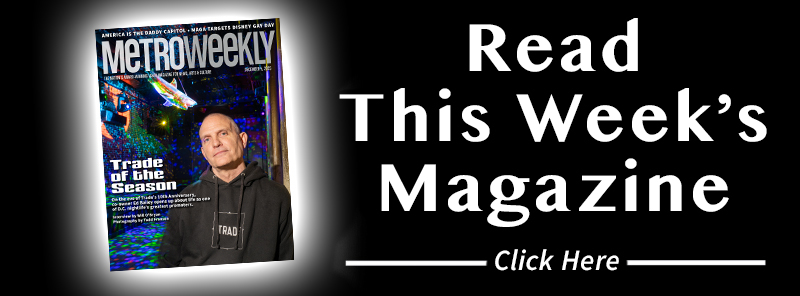
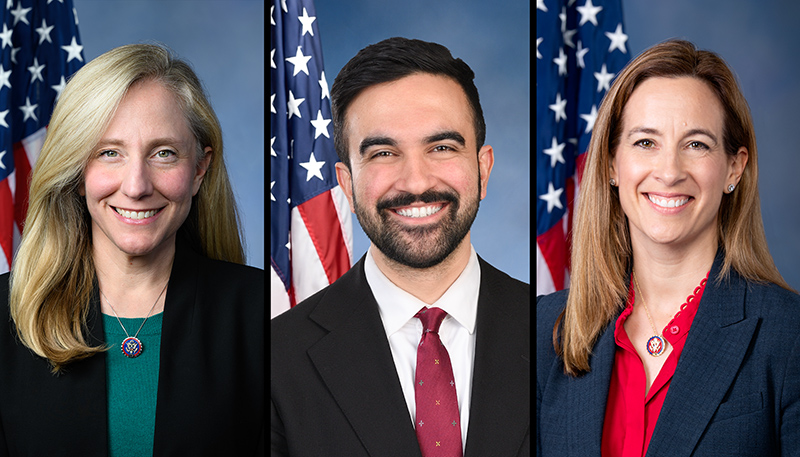
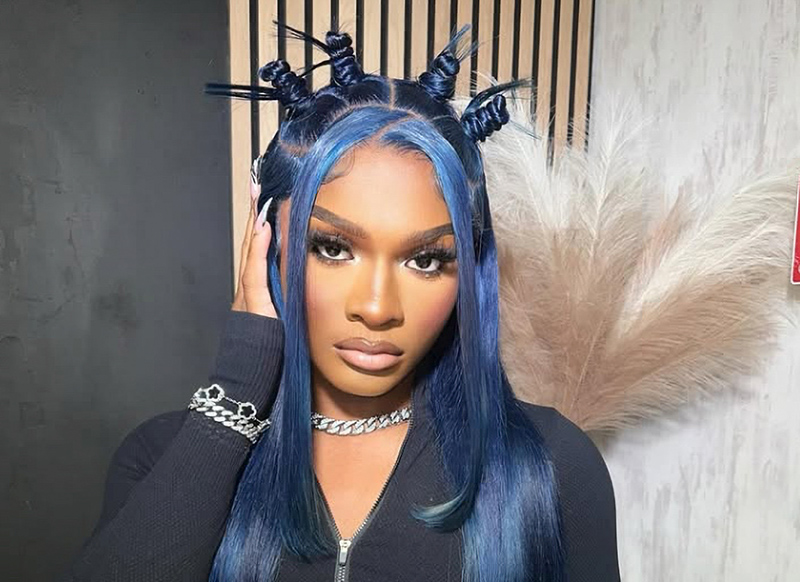
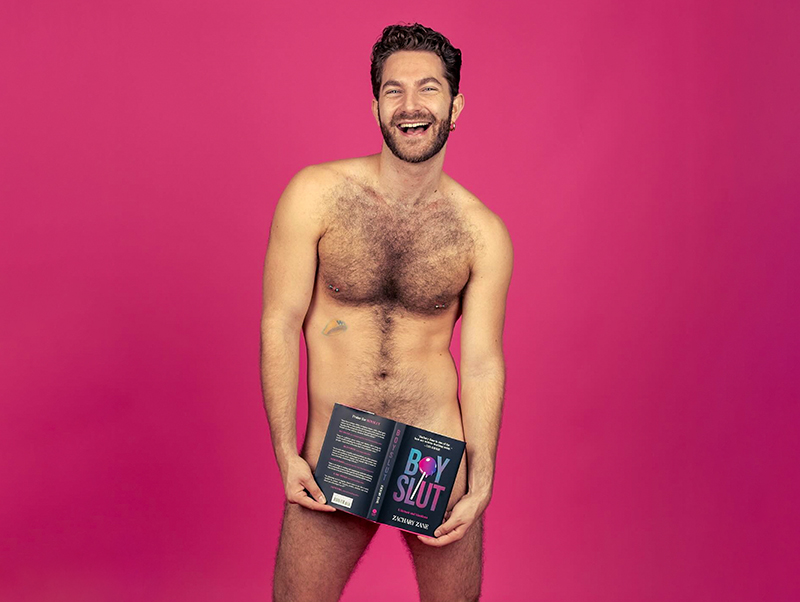














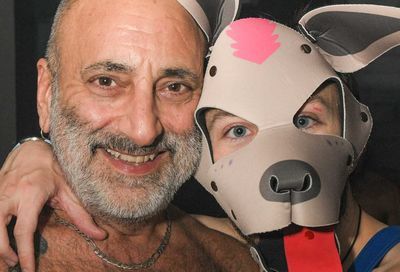
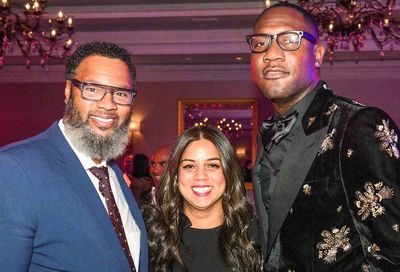
You must be logged in to post a comment.